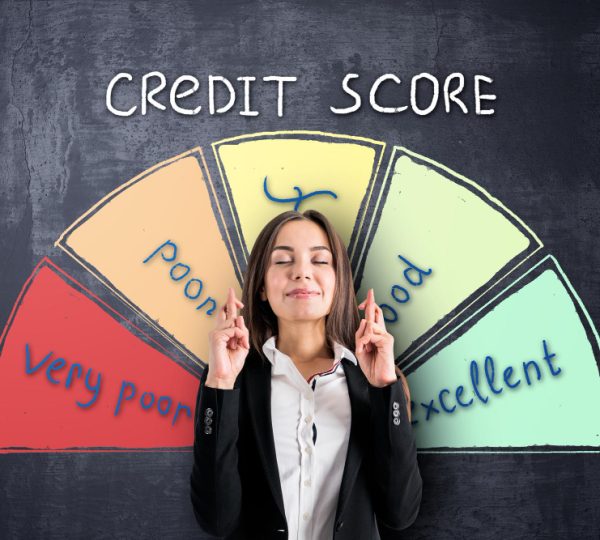How to Get the Answers You Need to Your 14 Mortgage Questions from Your Lender
Finding a mortgage lender begins with compiling a list of questions to ask. Having the questions answered gives you an advantage.

1) What kind of home loan would serve my needs the best?
With the answer to this question, you’ll know whether you’re dealing with a salesperson or a quality counsellor. In response to the question, “What are my options?” the mortgage lender should outline the benefits and drawbacks of each loan option based on your specific circumstances.
2)What sort of initial investment do you recommend?
Lenders prefer a 20% down payment, which is only sometimes necessary. Mortgages are available with as little as a 3% down payment or none for qualified purchasers. Every potential down payment has its own set of pros and downsides. The top loan companies will spend time explaining your options.
3)What down payment programs am I eligible for?
It’s worth your time to find a lender familiar with down payment assistance programs on the local, state, and federal levels and who has the resources to help you apply for and receive funding.
4)What is my APR?
This mortgage inquiry was likely already on your mind. It is the one common standard by which we can all judge. Maybe not. Your mortgage interest rate can be adjusted in several ways, most of which will incur additional fees from your lender.
However, after consulting with a few financial institutions, you will better grasp the interest rate range to which you will be entitled. Let’s round it off to 6%. We’ll refer to that rate as your “payment interest rate” because it will determine how much of your monthly income goes towards paying off your mortgage.
You might skip the following question about the annual percentage rate (APR) if you already knew it.
By the way, if you’re considering getting an ARM instead of a fixed-rate loan, you should inquire how often the interest rate on your payments will change. How much of a rise can I expect per year, at most? How high can the interest rate go?
5. What is the yearly interest rate?
Now that you have a general notion of how much your monthly payment will be, you should calculate your APR. So, what’s the distinction between the two? All of the hidden costs of a loan are included in the annual percentage rate.
Inquire with your lender if the APR you quoted includes any discount points. If you want to compare different lenders using the same standards, the answer you’re looking for is “No.” It’s possible to cut your interest rate by paying an additional fee known as discount points up front.
Comparing lenders’ fees for the same payment rate is easier when you can access their annual percentage rates (APRs) with zero discount points.
If, for instance, you were offered a payment rate of 6%, you would want to find an APR that was as low as possible given that payment rate. There could be a difference of 0.25% in the APRs offered by different lenders. The fees charged by the 6.25 percent APR lender are lower.
The APR is okay if it’s high.
Let’s pretend you’re looking for a “forever home.” The APR will increase if you acquire discount points to lessen your payment rate. After a few years, the interest savings from the lower payment rate will more than make up for the upfront cost savings.
6)Is it the day you run a full credit report on me?
Know ahead of time if and when the lender will do a “hard” credit check, also known as a “hard inquiry.” Your credit report will reveal that kind of examination into your payment history. For a definitive interest rate estimate, lenders must accomplish this.
It would help if you tried to keep the time between hard credit pulls to a minimum while searching for multiple lenders, ideally no more than a few weeks.
7)Do you bill more to lock in an interest rate?
You should lock in your interest rate once you’ve chosen a lender. This guarantees that it won’t rise, though it also prevents it from falling.
There may be a cost to lock in your rate with some lenders. Some don’t, but you should know that the expense may be included in your interest rate and other costs. The interest rate lock does not incur additional fees on a standard mortgage (as opposed to a construction loan).
8)Should I get mortgage insurance?
To obtain a conventional loan with a down payment of less than 20%, the answer will likely be “Yes.” Government-backed mortgage loans have a separate system for mortgage insurance. Examine the FHA mortgage insurance program as an example.
Even if the “lender paid,” mortgage insurance is typically rolled into the loan’s interest rate and monthly payment, increasing both. You should find out if the cost of mortgage insurance is a one-time fee, a recurring charge, or both.
Then, consult the lender to learn your alternatives. Possible advice might be to “Make a bigger down payment.”
Another option is to look for no-mi mortgage loan programs to see if you qualify.
9)Exactly how much will I have to pay every month?
I imagine you’ve pondered this before. The monthly mortgage payment amount is a crucial piece of information, though. You should also find out if you will be charged a fee if you decide to pay off your mortgage early by selling your property or getting a new loan. The correct response is “No.”
10)What is the origination fee, if any?
The lender might earn more money from the borrower than the interest rate by charging an origination charge. Asking, “What are all of your lender fees?” is a natural follow-up question. You must mention the term “lender fees.” They’ll understand what you’re getting at because you’ll ask about other hidden fees afterward.
Your Loan Estimate and Closing Disclosure will include the specifics of these charges. However, the sooner you know them, the more time you will have to shop, compare prices, and get ready.
11)What other fees might I expect to pay at closing?
At closing, you will pay all third-party fees, including those for an appraisal, title search, property taxes, and others. The Loan Estimate and Closing Disclosure will also detail these fees.
12)When and how will I be informed of the loan’s status?
Will you deal with just one person for your mortgage application through closing? How will you be kept abreast of developments via email, phone, or web portal? Compare different lenders by outlining your service expectations up front and evaluating how keen the lender is to meet them.
13)Must I physically appear to sign all documents?
Electronic mortgage closings are more likely to move quickly than in-person closings and typically provide more thorough updates along the route.
E-closings also have the advantage that electronic documents cannot be filed without a signature. A missing signature on a paper document may take time to notice, leading to unnecessary hassles and delays.
14)How long will it be until my loan is finalized?
You need to know the anticipated closing and moving-in dates so that you may plan accordingly. Ask what you should refrain from doing, such as using credit to buy new furniture or engaging in other activities that could jeopardize your ability to repay the loan.



